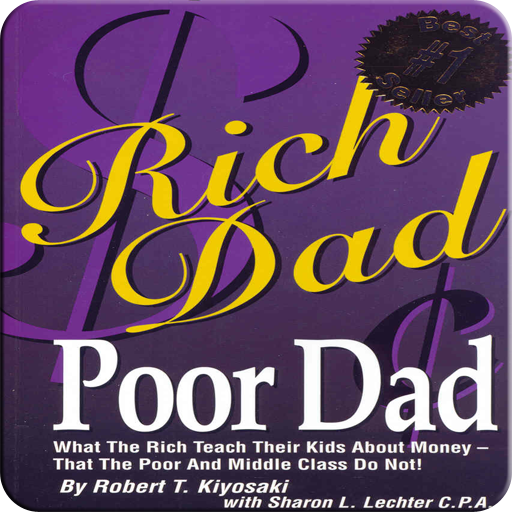When downsizing became the "in" thing to do, millions of workers found out their largest so-called asset, their home, was eating them alive.
當經(jīng)濟衰退不可避免地來臨時,數(shù)以萬計的工人將發(fā)現(xiàn)他們所謂的最大的資產(chǎn)--房子,正要活活地吃掉他們!
Their "asset", called the house, still costs money every month.
這項叫做房子的資產(chǎn)每個月都要花錢。
Their car, another "asset," was eating them alive.
汽車--他們的另一項"資產(chǎn)",也在吞噬他們的生活。
The golf clubs in the garage that cost $1,000 were not worth $1,000 anymore.
車庫里花1000美元買來的高爾夫球桿,現(xiàn)在已經(jīng)不值1000美元了。

Without job security, they had nothing to fall back on.
沒有了職業(yè)的保障,他們也就失去了生活依靠。
What they thought were assets could not help them survive in a time of financial crisis.
他們所認為的資產(chǎn)無法幫他們度過財務危機。
So many people have put themselves in deep financial trouble when they run short of income.
所以許多收入少的人更容易陷入財務困境。
To raise cash, they sell their assets.
為了獲得更多的現(xiàn)金,他們不得不出售資產(chǎn)。
First, their personal assets can generally be sold for only a fraction of the value that is listed on their personal balance sheet.
他們個人資產(chǎn)的賣價遠比他們在資產(chǎn)負債表上列出的數(shù)字低。
Or if there is a gain on the sale of the assets, they are taxed on the gain.
如果賣掉資產(chǎn)之后獲得了收益,他們還要繳稅
So again, the government takes its share of the gain, thus reducing the amount available to help them out of debt.
所以說每獲得一次收益,政府就會從中拿走一份,從而減少了可以用來幫助他們擺脫債務的現(xiàn)金。
That is why I say someone's net worth is often "worth less" than they think.
這就是我說有些人實際的凈資產(chǎn)要比他們自己認為的少得多的原因。
Start minding your own business.
開始關(guān)注你自己的事業(yè)
Keep your daytime job, but start buying real assets,not liabilities or personal effects that have no real value once you get them home.
在繼續(xù)工作的同時購買一些房地產(chǎn),而不要買負債或是一旦被你帶回家就沒有價值的個人用品。
A new car loses nearly 25 percent of the price you pay for it the moment you drive it off the lot.
在你把一輛新車開出停車場的同時,它已經(jīng)貶值25%了。
It is not a true asset even if your banker lets you list it as one.
汽車不是真正的資產(chǎn),即使你的銀行經(jīng)理讓你把它列入資產(chǎn)項。
My $400 new titanium driver was worth $150 the moment I teed off.
一根新的價值400美元的鈦合金高爾夫球桿被我開過球后,就只值150美元了。
For adults, keep your expenses low, reduce your liabilities, and diligently build a base of solid assets.
對成年人而言,把支出保持在低水平、減少借款并勤勞地工作會幫你打下一個穩(wěn)固的資產(chǎn)基礎。
For young people who have not yet left home, it is important for parents to teach them the difference between an asset and a liability.
對于還未經(jīng)濟獨立的年輕人來說,父母應該教他們搞清楚資產(chǎn)和負債的區(qū)別。
Get them to start building a solid asset column before they leave home, get married, buy a house, have kids, and get stuck in a risky financial position, clinging to a job, and buying everything on credit.
讓他們在離家、結(jié)婚、買房子、生孩子、陷入財務危機、完全依賴工作和貸款之前,建立起堅實的資產(chǎn)基礎,這是非常重要的。
I see so many young couples who get married and trap themselves into a lifestyle that will not let them get out of debt for most of their working years.
我見過許多年輕夫婦在結(jié)婚后不久,就陷入了即使工作多年也無法擺脫債務的生活方式中。
For most people, just as the last child leaves home, the parents realize they have not adequately prepared for retirement and they begin to scramble to put some money away.
對大多數(shù)人而言,當他們最小的孩子離開家時,他們才意識到自己還沒有為退休作好足夠的準備,于是開始拼命地掙錢。
Then their own parents become ill and they find themselves with new responsibilities.
接著,他們的父母又病了,他們又背上了新的負擔。
So what kind of assets am I suggesting that you or your children acquire?
那么,你或你的孩子應該獲取什么樣的資產(chǎn)呢?



